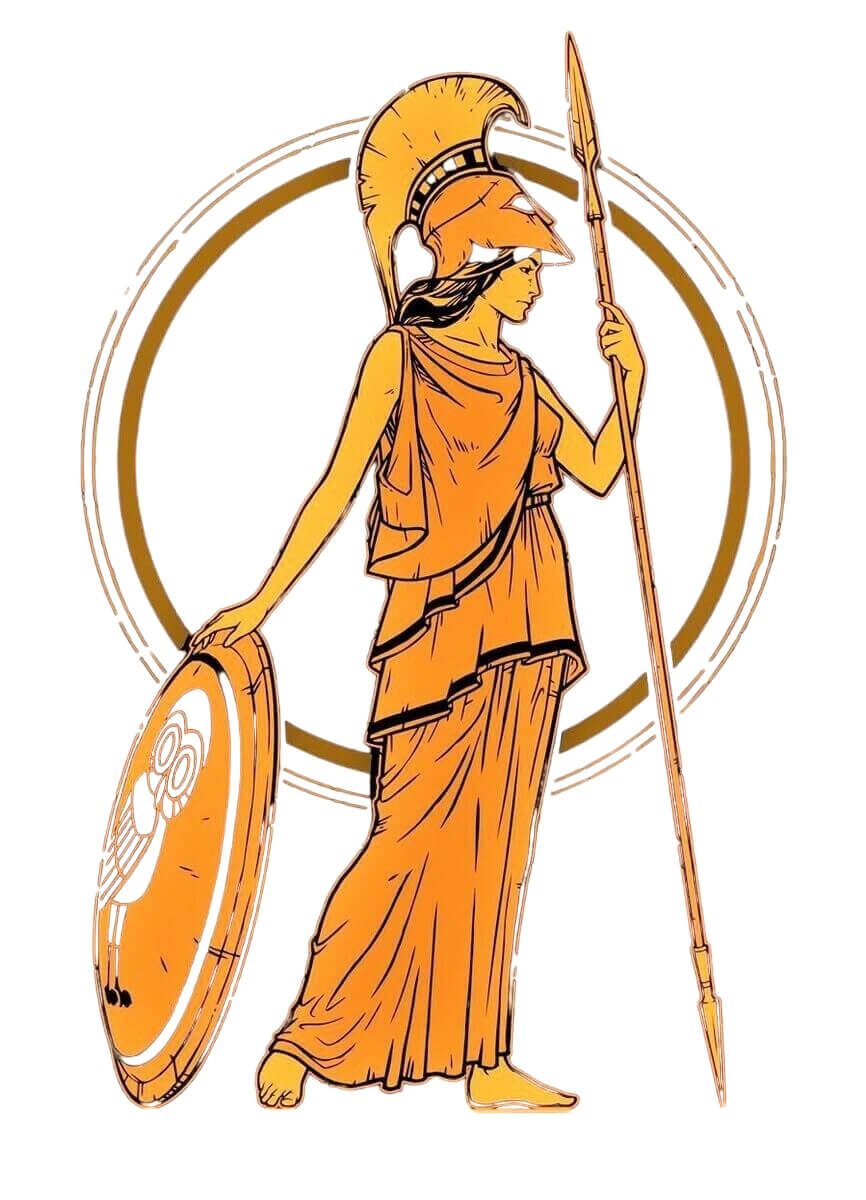Medusa: The Greatest Secret in Greek Mythology
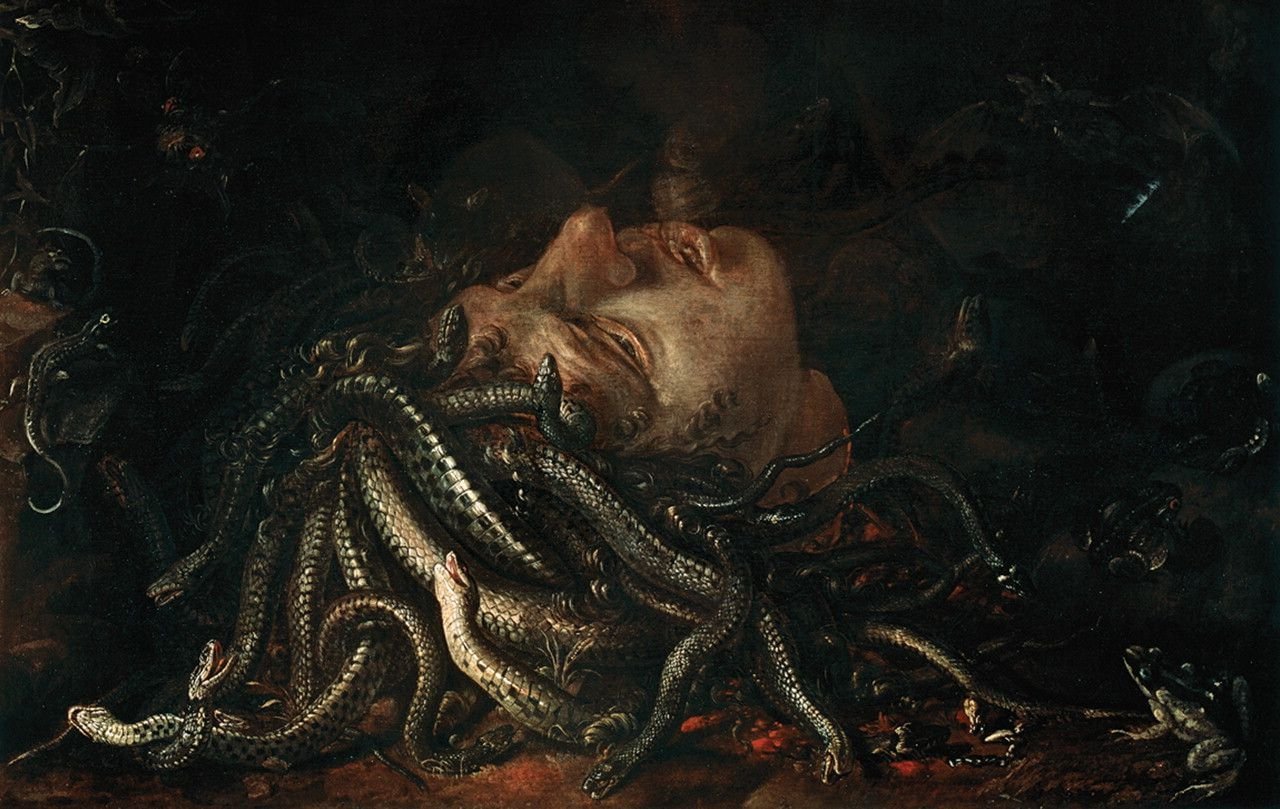
In Greek Mythology, Medusa is the youngest sister of two deathless gorgons Stheno (Violence) and Euryale (Self-Profit), characterized by her mortal nature and paralyzing gaze of eyes. She was beheaded by Perseus with the help of Athena (greek goddess of wisdom, handicraft and strategic warfare) and Hermes (God of Commerce and Trade).
Medusa’s origins and depiction
According to the original story, Medusa was a daughter of marine gods Porcys and Ceto, chtonic monsters that inhabited the sea in ancient times and had two immortal sisters – Stheno and Euryale. Steno was the eldest child and Euryale the second eldest before the famous gorgon.
Often depicted as a horrid snake-haired monster in the ancient Greek handicraft, Medusa began to be represented dreadful and beautiful by the Greek artisans and sculptors in the fifth century BCE. In fact her paralyzing gaze of eyes has a dual philosophical meaning. Insomuch as it embodies the temptation of vice and the destructive power of lies.
Thereby, previously to the roman poet Ovid who had retold the story of Medusa in his Metamorphoses, no ancient Greek source ever mentioned the sexual abuse of Medusa. She was supposed to be a monster and Athena had nothing to do with her malediction.
Medusa according to Ovid
According to this late roman version of the myth, Medusa and her sisters had been born simple women and not Gorgons. However only Medusa had a beautiful face and alluring appearance. Thereupon the tenebrous curse that fell upon her occurred because of Poseidon’s vicious attempt to possess Medusa in the temple of Athena.
Athena went into a rage after such a sacrilege of her sanctuary and punished Medusa, transforming her and her sisters into horrendous monstrous creatures with snakes in place of hair, doomed with the malediction to turn people into stones with one single glance of their eyes.
Since that moment on, two Gorgons had been immortal and only Medusa had a vulnerable nature. This part of the myth didn’t change the meaning of Medusa in Greek mythology, insomuch as the attributes of the gorgon and her sisters always had been the same, before Ovid and according to his last version.
Precisely these attributes as the mortal nature of the gorgon and the immortality of her sisters, the order of birth of the three gorgons and paralyzing gaze of their eyes are indispensable to interpret the story of Medusa, without forgetting another important hints – her strong linkage to Athena – the goddess of Wisdom and the myth of her slayer Perseus – a rebellious young hero, that had been strongly discriminated by the essence of a wicked king. In fact, his own grandfather and the king Polydectes tried to kill him indirectly and ruin his life.
The Birth of Perseus, the slayer of Medusa and the Power of a sinful king
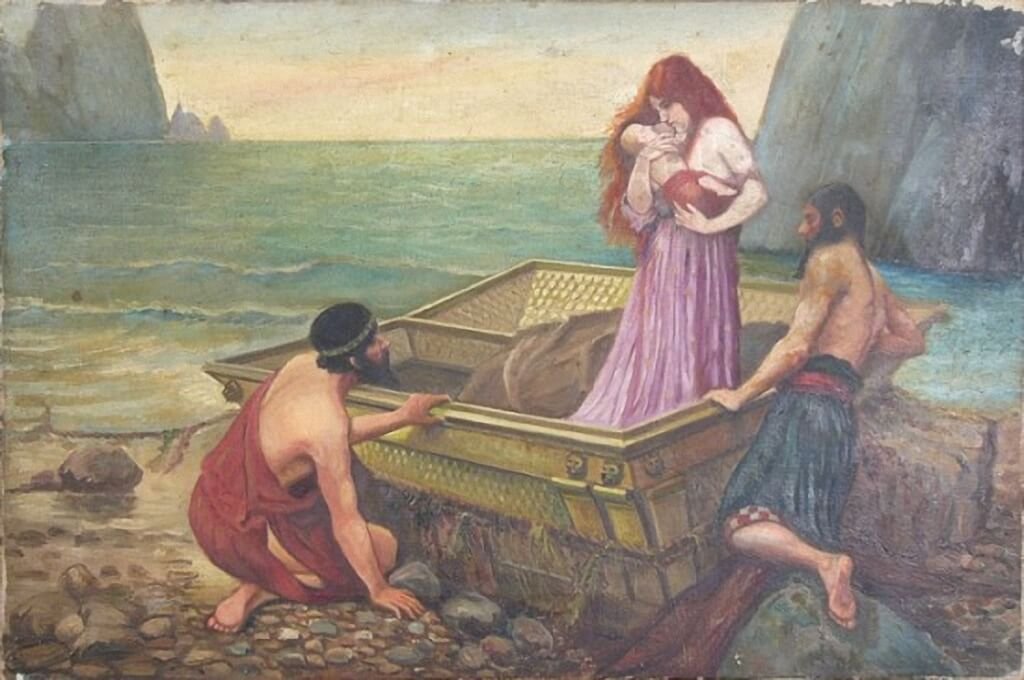
I. The way of a wicked king is the ultimate essence of a simple man. “To spoil and ruin the birth of heroes and abuse everyone so much as I can.” According to the story of Medusa, Perseus is an unfortunate son of Zeus. His grandfather Acrisius, the king of Argos, had been foretold to perish by the hand of his future grandson. Afraid of such a misfortune, he concealed his daughter Danaë in a bronze chamber, inside the courtyard of his palace. But it did not help much, insofar as the supreme god of Olympus himself was interested in Danaë.
Zeus managed to get inside the chamber at night and left the youthful maiden pregnant. A short time after, Danaë gave birth to Perseus. It scared Acrisius to death and made him take an unfair decision to cast them both into the sea in a wooden chest. Nonetheless, Danaë and Perseus didn’t die, they have arrived in safety to the shores of Seriphos, after having been helped by Zeus and marine divinities.
Danaë, Perseus and Dictys
Once on the island Danae and her little son were found by a fisherman named Dictys. Thereupon he took care of them both and raised Perseus to manhood. A time after, when Perseus had grown up, Polydectes – Dictys’s brother and the king of the island had fallen in love with Danaë. The beautiful princess didn’t want to become his newest lover and relied on her son as a faithful defender. Succumbing to his thirst for revenge, Polydectes conceived a plan to do away with Perseus. For that reason he masterminded a big false banquet, faking to collect horses as a contribution for Hippodamia – the daughter of Oinomaos.
The Story and Meaning of Medusa
Perseus and Medusa
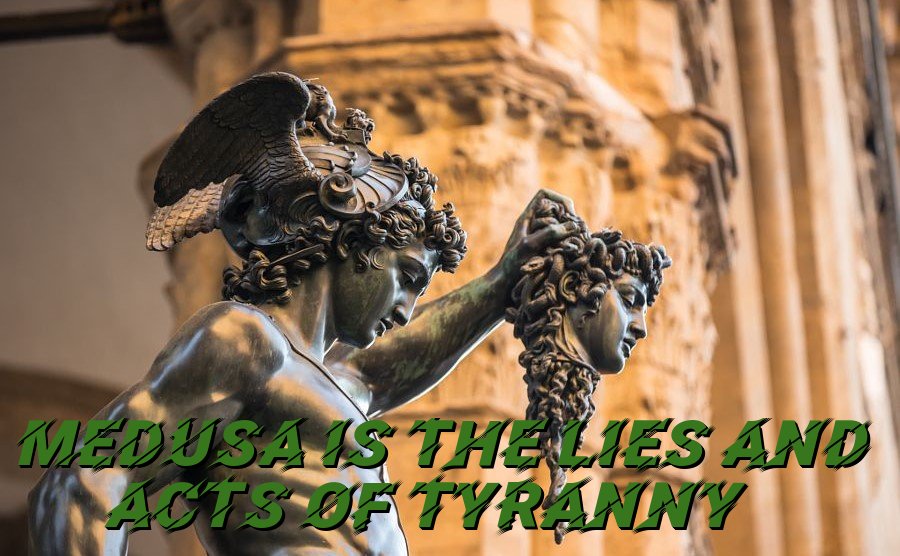
Insomuch as Perseus was not able to buy a horse, he accepted the request to bring the head of Medusa – a terrible monster, whose single glance of eyes was turning people into stones. Thereupon, the hero had no other choice, than killing the gorgon after his foolhardy promise to Polydectes. Thus, he prepared himself for the adventure and went away in search of the feat.
On behalf of such a beginning, it’s possible to distinguish important elements of a complex allegory. For example, Zeus, the father of Perseus is always involved with some unhappy births of gods and heroes. In fact, although he is married with Hera, he cheats on her constantly, using his absolute power to abuse and seduce women. The story of Medusa is not an exception, but the most impressive expression of social dispossession: having been born as a prince, Perseus is condemned to live as a poor and unfortunate, pursued by the political power of his grandfather in the first place and governmental mandate of Polydectes, who wants him to be killed by Medusa.
II. The acts of Polydectes are a clear reference to the administrative structure of tyranny, isolating and grim with people, that dare to defend justice. Therefore, it is a solid part of what Medusa had symbolized and embodied in ancient Greek mythology: The lies and acts of tyranny.
III. The false banquet and the collection of gifts for the hand of Hippodamia in the story of Medusa make reference to an inconvenient fraudulent regulation, costume, or the whole false religion, invented with a special purpose to ruin and weaken the force of some talented, young adversaries, that can suppose a big problem for the might of a king. That can be one of the most important allusions to the meaning of Medusa in Greek mythology: IV. The only destroyable bastion of a wicked king are the lies and falsehoods of his regime, the acts of tyranny, supposed to guarantee his baleful political power.
Medusa and her immortal sisters
Disinformation, fraudulent laws, political persecution, retrograde beliefs, corruption and falsities are the mortal source of power for a wicked ruler. These lies and acts of despotism must be eradicated to free humankind in the same way as Perseus must slay Medusa, but two of her sisters are immortal – two mainstays of an ignoble autocrat, which can be used to end with the despotic power of tyranny, and should not be persecuted and eradicated – Violence and Self-profit.
For that reason, according to the story of Medusa, Stheno and Euryale are everlasting; being the leading features of the mankind from the times of the archaic sea, they had granted its major wrongdoings and its greatest achievements at the same time.
V. Them both undying and eternal, Violence and self-profit are not entirely bad, they can be used as the main weapons to eradicate and demolish the might of tyranny and injustice.
The symbolism of Stheno in the story of Medusa
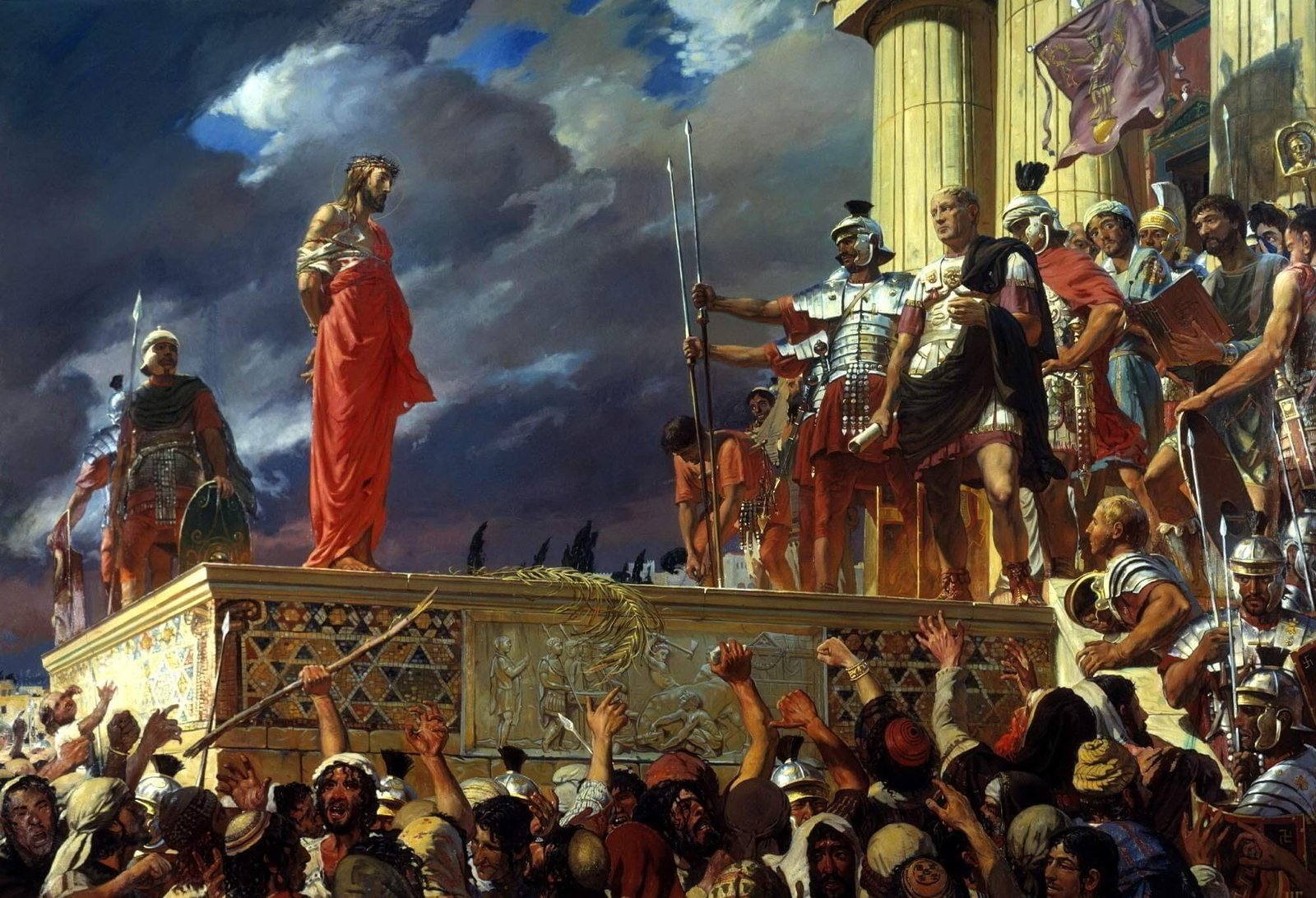
The idea of violence is necessary for the human emotional independence and mental health. Because a man is an enemy for another man. The humans had been traitors and foes of each other, but never good friends. Therefore, to exaggerate the opposite conception of life, would be damaging for the mankind’s existance and freedom.
In fact, retrograde ideologies, that searched the eradication of violence and self – profit predate Christianity and Communism. Them both – medieval Christianity and soviet communism leaded to the greatest social-economic disasters and the biggest degradation of human lives.
An ideology or religion that pursues the expression of strength (Stheno) searches the annihilation of physical and intellectual might, which can be used by the rebels against the power of an emperor. The early Christians followed Christianity in such a fanatic way, because they were fragile and weak and liked the idea of a collective, usurping and destroying the pillars of heroic individualism. Their frantic envy and wish to demonstrate, that an individual is nothing against the values of a mass moved them forward.
V. Roman Empire had changed its gods full of individual exceptionalism for Christianity. As a consequence, the way of the warrior that was the fundamental base for the empire had been ransacked in its spirit and traditions. The plebeians behaved more plebeians of what they used to be, meanwhile the roman legionaries detested them even stronger. “To divide your enemy, so you can reign” had worked the most effective way, but the Roman Empire died and the progress of humanity had been stopped for a long thousand years.
The symbolism of Euryale

On the other hand, as the story of Medusa suggests, the eradication of self-profit and property (Euryale), would also suppose a complete social disaster. Absence of private entrepreneurship, would lead such a society towards the greatest economic collapse, as it happened in USSR. The early Bolshevism was an excellent expression of left fascism. The idea of a collective destroying the life of a better neighbor, because of their narrow-minded hate to intelligence, dominated the spirit of Bolshevik revolt.
“No rich, no poor”, the proletarians followed this principle of Marxism in every way. They smashed the values of the left utopian revolution and fought against the true revolutionaries (SR – social-revolutionaries, Kadets – Constitutional Democratic Party and White Army of Russia, as republican and democratic forces).
Lenin and his ideology looked ugly enough, as to symbolize the expression of proletarian envious nature. Behaving like a herd without personality, the workers chose the political mandate of hateful equality. They never listened another revolutionaries, because they yarned for the lordship of losers above all over people in the world.
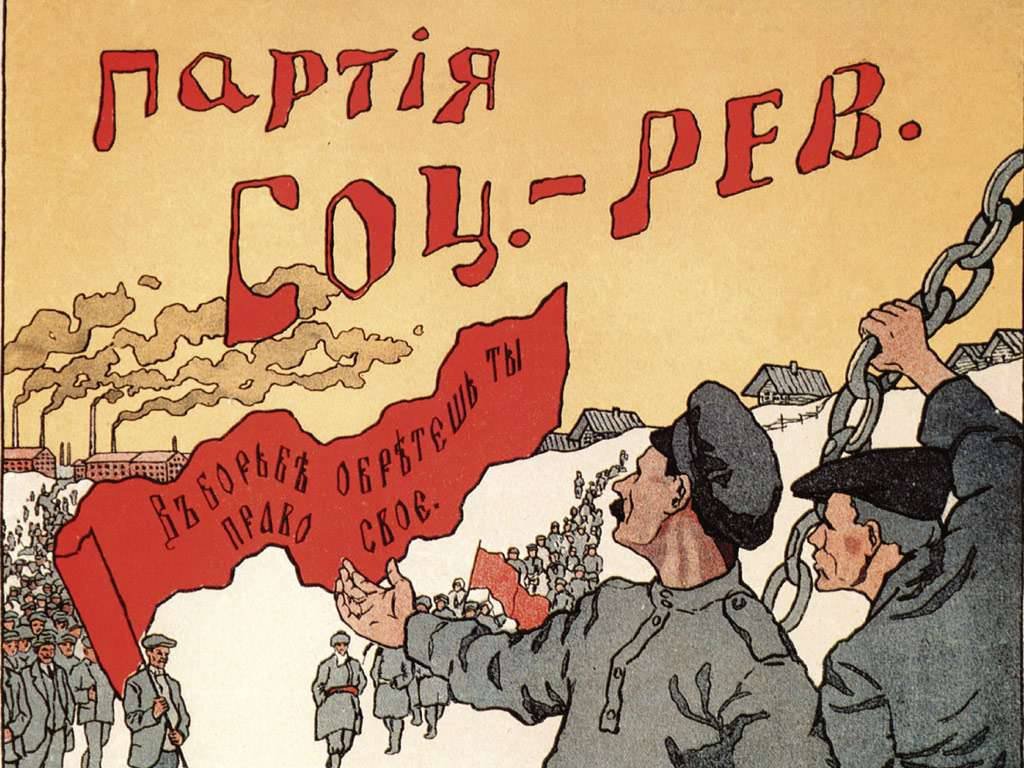
VI. To forbid the notion of success and free thinking in such a way as Zeus was used to spoil the birth of heroes, because of popular thirst for revenge against the best individuals. This is another reason for the immortality of the both eldest gorgons. People, who pretend to eradicate Violence and Self-Profit perpetrate even a greater violence and contribute to a much greater injustice.
Medusa and the age of the gorgons
However, there is also the order of birth of the three gorgons. When after another blow of violence, self-profit itself brought its first benefits to the humankind, the resources and opportunities had been monopolized by an opulent class of rulers and aristocrats. This new aristocracy had avoided all other people to take advantage of money. They restricted knowledge and the proliferation of ideas, which would have contributed the most to the progress of humanity.
Unjust laws, corruption, wicked morality and governmental falsehoods had helped the rich to maintain their political power. To be said, VII. the lies and acts of an evil government, had obstructed the progress of humankind and appeared after the Self-Profit, in the same way as Medusa, who was the last child after Euryale.
Nonetheless the story of Medusa and Perseus has another universal message. The deceits of political power aren’t always linked to the interests and self-profit of some rich people’s dome: the poor man is so bad as the wealthy, hisdelusions of hate towards the intelligence, strength and free thinking of a free man are so colossal, and his reasoning is so pathetic, that he would prefer to build an entire despotic regime of tyranny with a big prejudice for himself and his kind, in order to forbid and ruin the success of self-made winners. As a matter of fact, he already had chosen: Communism, Fascism, Christianity.
Medusa and Zeus
The story of Medusa portraits the dreams of a simple man about the destruction of goodness: the slaves from the cave would never allow a free man to help them. (Allegory of the cave by Plato). They wish the free man to die and suffer, they are longing to exterminate and forbid the notion of personality and freedom.
Acrisius, Polydectes and Zeus are all the same: this wicked human nature, which always had spoilt the world: envy to someone greater, the wish to kill a better neighbor, the yarning to ruin and frustrate the private life of a free man, resumed in easy lines as Zeus – the strongest human essence that always had stood behind the greatest misfortunes of the humankind: VIII. “To avoid the birth of heroes (people capable to do great things), so much as frustrate their success and abuse everyone so much as I can.” The way and quintessence of a simple man – a peasant, a worker or a rich, is the way of a wicked nefarious king.
Athena and Hermes arming Perseus
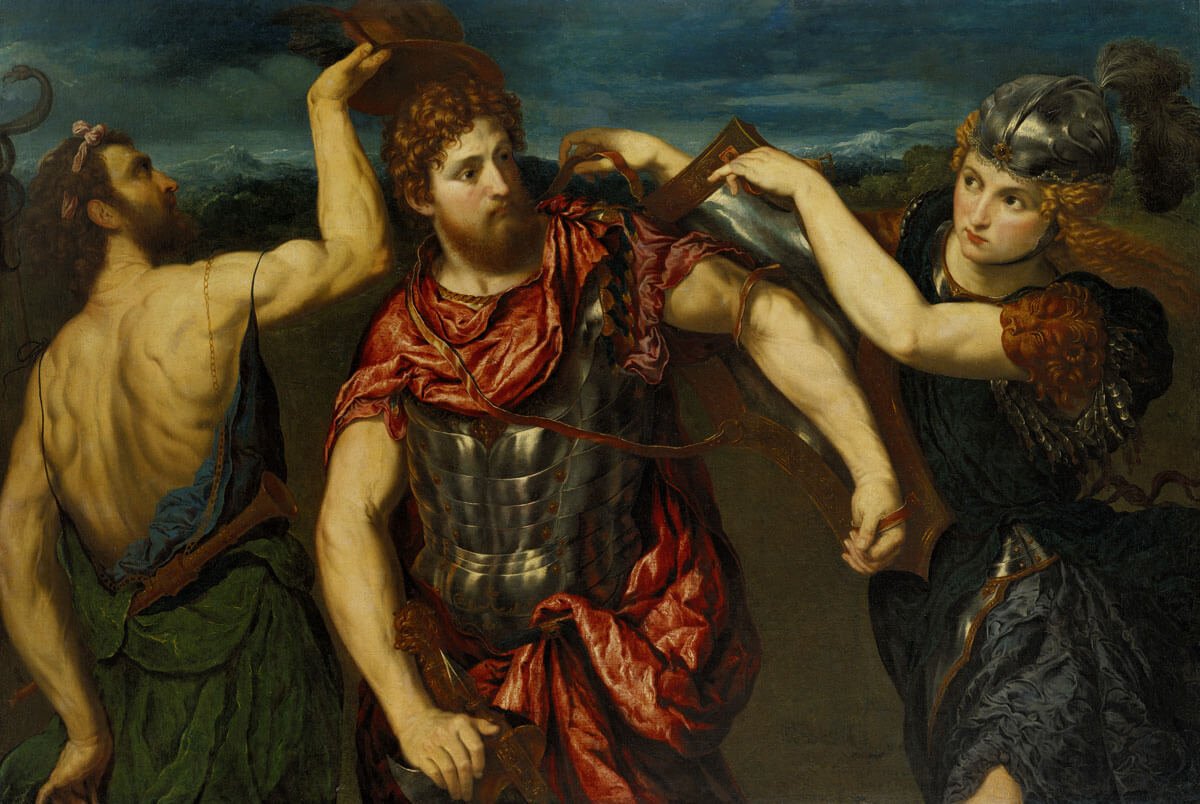
A difficult inhuman feat was to be accomplished by Perseus, insomuch as he needed to reach the western edge of the earth. The country, where reigned the goddess of night and the god of death Tanat. That being so, Athena and Hermes came to help Perseus in his search of Medusa providing him amazing artifacts of power and might.
Athena, the goddess of wisdom had given Perseus a bronze mirrored shield, which he required to look behind his back. It granted him safety against the petrifying gaze of Medusa. On behalf of Hermes, the hero received the adamantine harpe sword. It was able to cut the hardest steel like a soft wax. Thereupon, Perseus planed to kill Medusa at one single blow.
Hermes informed the young hero as well about the whereabouts of the Graeae. The three sisters of the Gorgons were eternally old women. They lived in a gloomy place and knew about the Gorgons and the magic artifacts, required to defeat them.
Perseus, The Graeae and Hesperides
Long and perilous was the path of Perseus. He traveled throughout many different countries, until he reached his final destination. The old Graeae lived in a mournful unhappy place. They were eternally senile and shared one single eye and one single tooth among them. Following the advice of Hermes, Perseus crept up to them in the darkness and grabbed their only eye and tooth. The three old women implored helplessly for a while, but needed to cease in their anger. They agreed to indicate the way to the Hesperides after Perseus’s harsh blackmail.
Perseus headed where he had been indicated and after a short journey had run across an awesome grove full of flowers, there the streams murmured merrily and the trees rustled affably in their dream of youth. The Hesperides, three youthful, pretty nymphs welcomed Perseus with joy and gave him kibisis – a magic, impenetrable knapsack able to contain safely the head of Medusa. He also obtained a pair of winged sandals from Hesperides and Hade’s cap of invisibility. Perseus put on winged sandals and the helmet of Hades. He threw over his shoulder the magic bag and quickly rushed through the air to the island of gorgons.
The meaning of the Graeae

In the original story of Medusa, the Graeae are three eternally old women that had grey hair from the early moment of their birth. They have nothing, but an eye and a tooth. Eternally old persons, unable to see clear or eat well, they aren’t capable to accomplish great things in their life or go away to find a grove, full of flowers, there the streams murmur beautifully in their perpetual dream of youth.
VIII. “Time is money.” It means: people kill and do bad things because of money, thus people would kill and do bad things because of Perseus’s time.
The time of a champion is precious, and the Graeae are narrow – minded, angry persons, uncapable to see clear, think or live young. They aren’t going far, by reason of their covetous nature. In fact, they never wanted to make an effort to improve; they are just capable of hate, vanity and angriness.
“Never believe anyone”, they want to ruin your young time. Deceive them well and take away their hateful narrow-minded eye. The Graeae have nothing, but one tooth and one eye. That’s the reason of their retrograde point of view. Some people are always used to defend totalitarian regimes and bark loudly over the heroes.
Take care! They could be making a whole plot to ruin your young life. Their dream is to make you live sick, poor and invalid, because of their hateful grudge. The Graeae abhor the Hesperides and everyone, who is capable to enjoy the youthful look of freedom.
The death of Medusa
Perseus flew high and happy in the sky. Wherever his gaze reached, the sapphire blue of the sea, sparkled vivaciously under the golden rays of the blazing sun. After a long, tiring journey, the island of Gorgons appeared as a black stripe on the faraway line of the horizon. Perseus went down for sudden and saw three terrible gorgons, sleeping on a rock. Their scales shined like a fire under the sun. Little nasty snakes on their heads, moved from one side to another in a restless dream, full of anxiety.

But which one was Medusa? Fearful and certainly loathsome, the three gorgons looked identical. All at once, Athena appeared next to Perseus, and whispered to him, indicating which creature was his target.
Perseus rushed from above to the monster. He looked at the shield afterwards, trying to measure his blow. The snakes on the head of Medusa felt his approach and hissed menacingly. But the sharp sword flashed with lightning, and the head of the gorgon fell down. Her dark blood poured onto the rock and immediately afterwards the winged horse Pegasus soared to the sky.
Undistinguishable in the helmet of invisibility, Perseus grabbed Medusa’s head. He left it inside the magic bag and rushed away from the island. Thereafter, the sisters of Medusa woke up for sudden and saw her headless body. Enraged and furious, they rushed in the air around the island for a long time. But they didn’t find anyone and Perseus was already over the sands of Libya.
Athena and Hermes against Medusa
The main patrons of Perseus are Athena and Hermes. Athena is the goddess of wisdom, handicraft and strategic warfare. In fact, the ancient Greek handicraft is nothing but a bodacious expression of early Art. In regard to strategic warfare – science and technology are very effective on a battlefield. And wisdom itself is a wide supertype or hypernym of science, philosophy and art.

Insomuch as wisdom is the quality of having a lot of knowledge and the right judgment, the main source of wisdom is Science, Philosophy and Art. Science itself as a systematic study of the world and its components (physics, chemistry, biology, mathematics) offers a very extensive part of knowledge, and experience of use. On the flip side, Philosophy is another essential fountain of wisdom, insofar as the study of human nature is significant and useful to improve the politics, human life and the human world itself.
Art is the third source of wisdom, by dint of its impressive emotional power and beauty. In fact, the art is the ultimate force, able to shatter the limits of human imagination, talent and creativity. Art brings perfection and spiritual freedom; the wisdom to create and conceive a better idea, plan, strategy or product.
IX. Thereby, Athena’s wisdom is not only the main source of victory, because of its large amount of infallible information and capability, which permits to create and mastermind surpassingly. On top of that, Athena is also the way of truth, freedom and justice in contradiction with Medusa – the way of falsities and lies, which existence is usually originated by avarice, hate and vanity of certain group of people and not by a correct calculation, perfect philosophical reflection or fabulous labor of creativity.
Athena vs Medusa
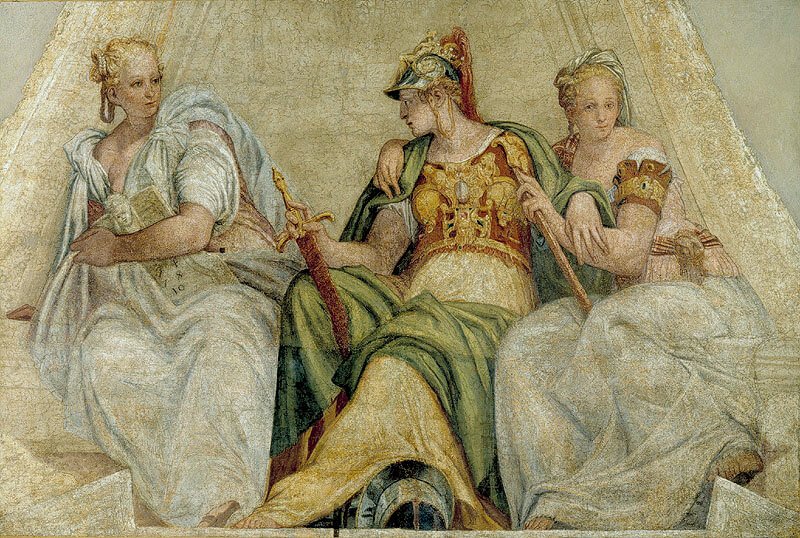
An evil despotic ruler fears the wellness, strength, conviction and perspicacity of his slaves. The king’s subjects are not allowed to be well fed, prosperous and intelligent. Since, in such a case they wouldn’t be weak, obedient and ignorant and could try to dethrone their unjust ruler.
Considering the oppression of servants as compulsory, each sinful king is prone to fear and forbid the power of Science, because of its cluster of social advantages. The larger amounts of better food, clothes and sane conditions would undoubtedly permit the thralls to be stronger and mutiny successfully against their king.
On the flip side, a wicked ruler abhors philosophy and art as well. Because of its free ideals and teachings about the Ideal State. In fact, this type of knowledge is very dangerous for the rule of despotism.
However, such a kind of medieval description sounds too savage for the sunny ancient Greece, characterized by its modern and jocund perspective of life. However this kind of Zeus is of a great social injury. He is accepted and tolerated by the civil society, and it makes him be even worse. He is so grueling as the Sisyphean task and finally so devastating as the flood of Deucalion, which had exterminated the Men of the Bronze Age. For that reason, Athena – the goddess of wisdom was born when Zeus had an excruciating headache. As an allusion to the disciplines that always resulted to be pernicious for the power of a wicked king – Science, Art, Philosophy.
Medusa vs Hermes
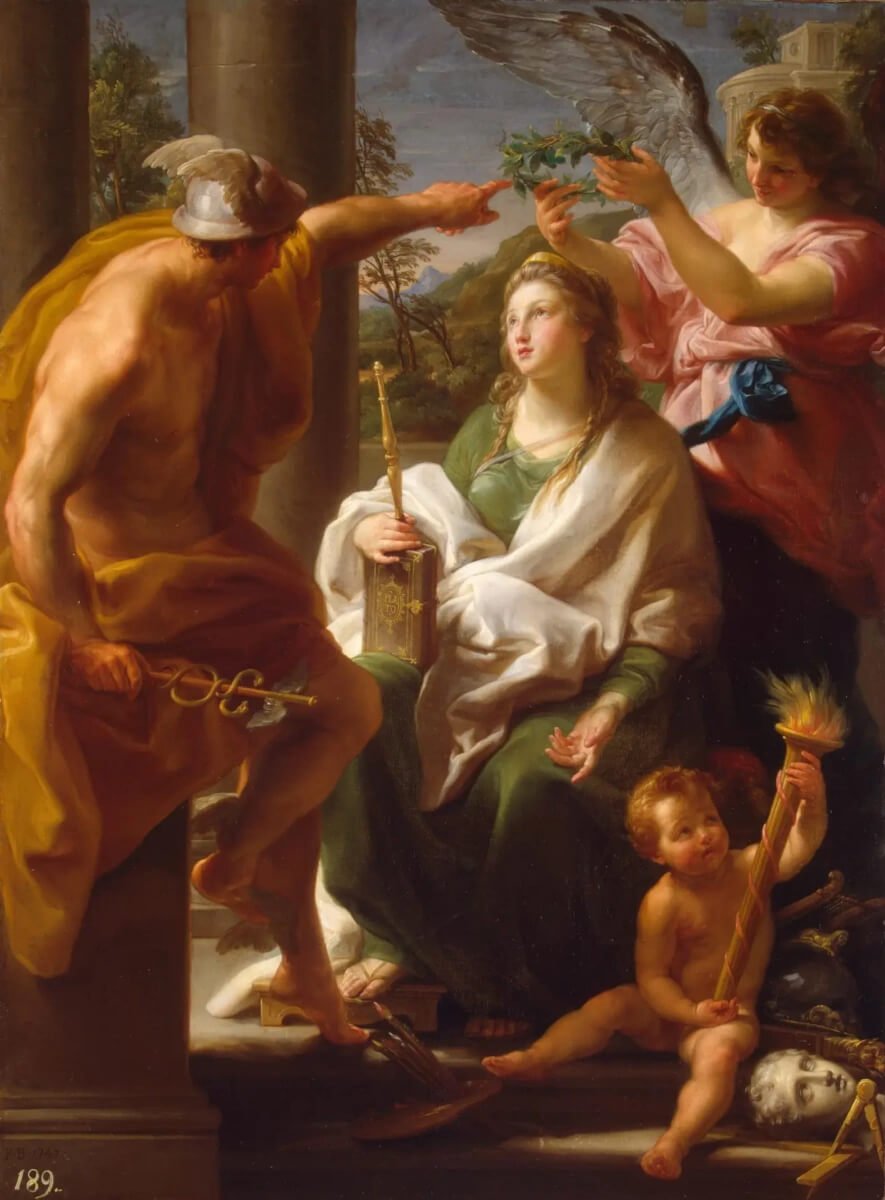
As the story of Medusa goes Hermes is so much unwelcomed by the tyrants as Athena. According to the Greek mythology he is depicted as a servant and messenger of Zeus. He is obliged to deliver the letters and post of Olympus, rushing through the sky as an errand boy. X. Every simple man shares the essence of Zeus – to be the best above everything and everyone, at any possible cost. Especially at the price of justice, which is so low and ludicrous, as the birth and childhood of future heroes that could overshadow the stardom of the king of Olympus.
Every simple man unwelcomes Hermes in such a way as Zeus, dreaming about his personal cluster of lies and absolute power. The fortress of sin, built by one man could be destroyed by the marvelous enterprise and money of another one. Therefore Hermes is an enemy of Zeus and Medusa. A man like him or Perseus could employ his capitals to extinguish the structure of injustice. But the supreme god of Olympus doesn’t like democracy.
As a matter of fact, great volume of trade contributes excessively to the social prosperity. Thus, the perspective of people changes for liberal and independent. As a result, no one bears the king and his absolutism anymore. However, without trade and entrepreneurship, the entire humanity begins to be hungry and starving and it supposes a big problem for the joyful idleness of Olympus.
As a consequence, the autocratic governments had always misjudged and limited the entrepreneurship. Hermes, playing the role of the errand boy for Olympus is a clear allusion to such a nasty misdeed.
Perseus’ artifacts and symbols of democratic political power
According to the original story of Medusa, Athena helps Perseus, having given him a polished bronze shield. The hero uses it to look at the reflections behind his back, and in his awesome act of bravery avoids being petrified by Medusa’s gaze of eyes.
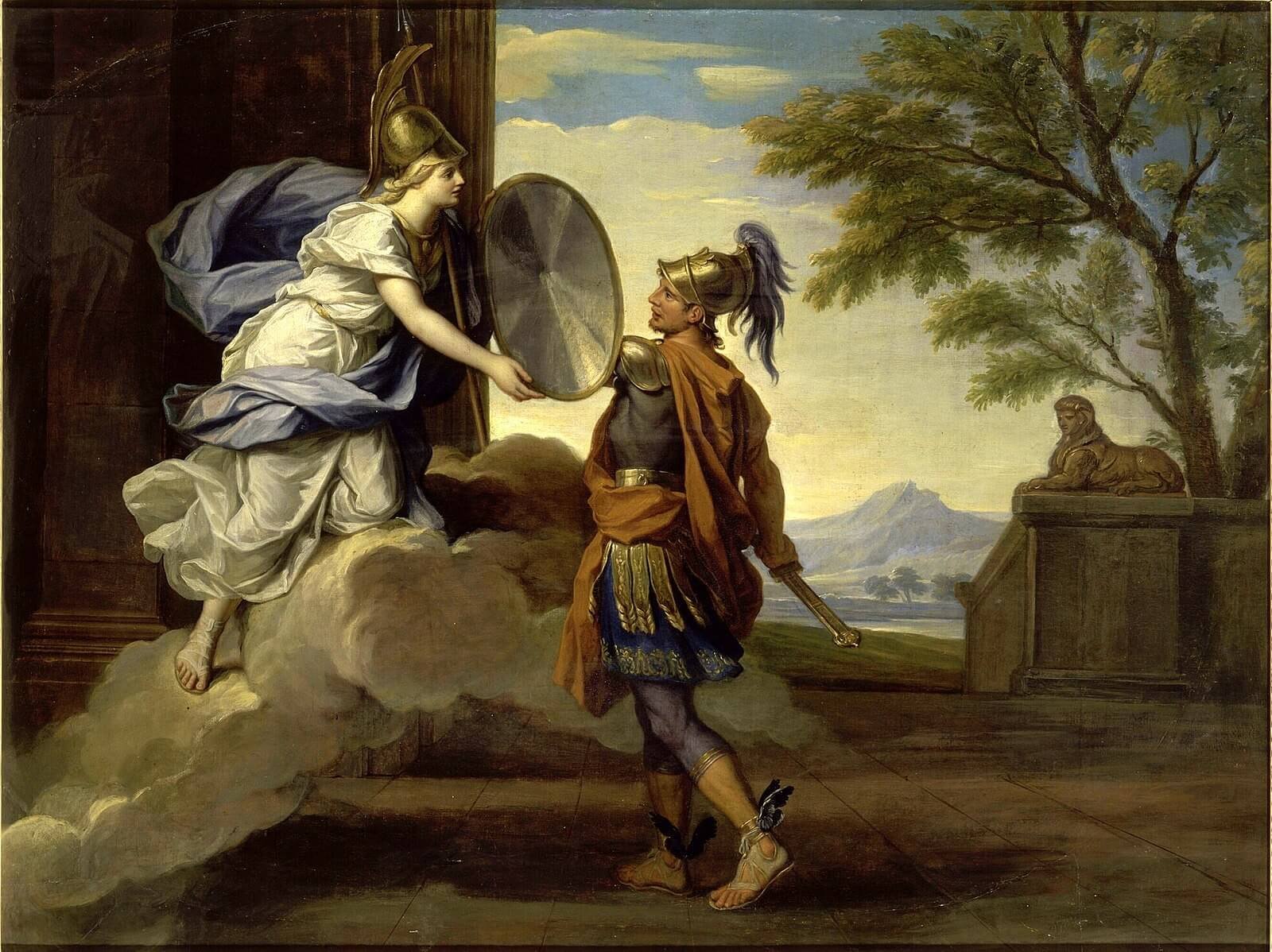
The shield of Athena is the symbol of wisdom’s superiority. That is to say, it symbolises the capacity to predict and vanquish an enormous calamity. Furthermore, the shield is as an insignia of wholeheartedness and commitment to the ideals of wisdom. Perseus fights for justice, freedom and utopia. He does not see his reflection in the shield, thus he will never be tempted or scared by the power of tyranny.
On the other hand, Hade’s helmet of invisibility and Athena’s shield work together. That is, having lived the way of perfection is his own heart, Perseus acts as a warrior of death and justice beyond compare. The ugly trivial world of humans does not lure him anymore. There is no cause to live, but the fight against Medusa in name of Athena. It feels like a wonderful melody about the loss of an eternal second of youth under the night sky full of stars. Such a place will never be reached by the wind of the hero. His romanticism and crimson chime of the sword don’t believe in people anymore. They will serve to the cause and the enticing music of death.
Thereupon, Perseus is transparent, pure and invisible, looking backwards. There never will be a reflection of an arrogant overbearing ruler, greedy for money and fame. It’s only about Medusa and a perfect strike of Hermes’s exquisite harp sword. The adamantine blade of trade and money will cut in only one fair direction: justice, prosperity and progress of the Ideal State. Where is no wish for the self-profit or sadistic pleasure of violence against humanity. Just a life of dedication for the sake of political masterpiece and Athena’s axiomatic system of chess.
As a magnificent example of true anarchist and revolutionary, Perseus has no interior or exterior arkhos. He is even greater, than the Platonic ideal of a perfect democratic ruler, expressed in the Republic. He is not only a strong victorious warrior and a great philosopher at the same time, but a great merchant and artist. Perhaps a scientist, insomuch as his main patrons are Athena and Hermes. To clarify, the victory against the malicious lies of tyranny will be managed by the means of Wisdom and Trade.
Perseus and Atlas
As it follows in the story of Medusa, Perseus had flown farther away from the tenebrous island of gorgons. He rushed through the air as an intrepid flash until he could descry the flourishing lands of Atlas (brother of Prometheus and son of the titan Japetus). Thousands of herds of awesome sheep and cows grazed on the fields of the giant. Lush and exuberant gardens grew in his domain. Among the estates, fountains and flowers stood a singular tree with golden branches and foliage. The apples, which grew on this tree were made of pure splendid gold, worth of a whole fortune. Atlas kept this tree as an apple of his eye. It was his most cherished and appreciated treasure.
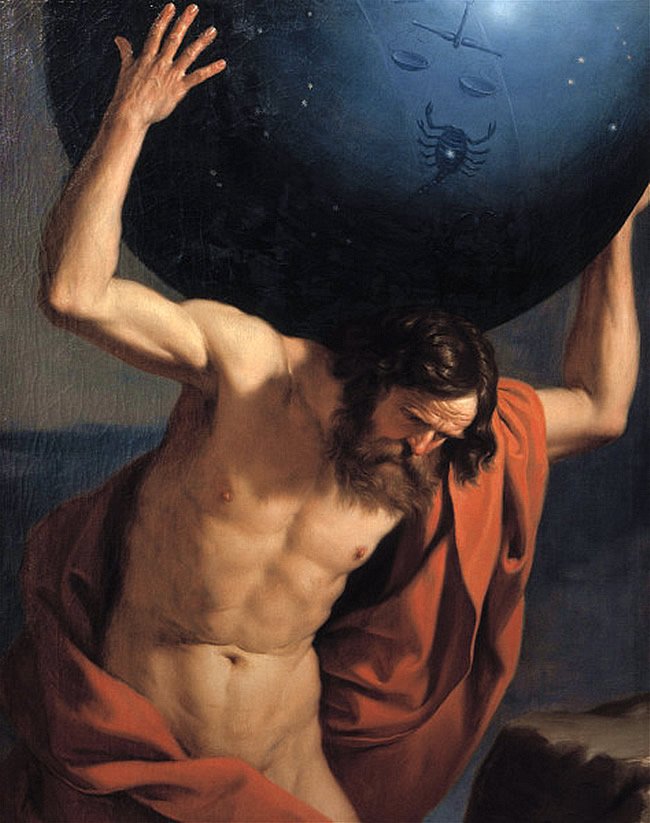
According to the story of Medusa the goddess Themis foretold the giant, that one day the son of Zeus would pass through his domain to steal the golden apples. Atlas felt very scared of such a misfortune, so he surrounded the garden, with a high impenetrable wall, and left a flaming dragon as a guardian at the entrance. The titan did not allow strangers into his dominions. He feared that among them one day would appear the son of Zeus.
Perseus turns Atlas into stone
Perseus knew nothing about Atlas’s obsession, so once he managed to land in his gardens, he had introduced himself as the son of Zeus. Atlas remembered immediately the bad augury about the golden apples and gave Perseus a very rude rebuff, calling him a liar and trying to expel him from the garth. Unable to fight the mighty giant, Perseus hurried out of the garden. He raged at Atlas inhospitability, and a devouring anger had filled his heart.
Completely infuriated, Perseus asked the giant to accept a gift. He quickly took out the Medusa’s head and, turning away, showed it to Atlas. Suddenly the giant had metamorphosed into a mountain. His beard and hair became dense forests, his arms and shoulders – turned into high rocks. And his head – into the top of the mountain, which went to the very sky. Since then, Mount Atlas had supported the entire celestial vault, with all its constellations.
The meaning of Atlas in the story of Medusa
In the story of Medusa, Atlas is probably the metaphoric representation of a working man as a class. Able to acquire and administer luxuriant, thriving gardens on his own, he is condemned by Zeus to sustain the sky. Atlas suffers an unnecessary and evil punishment for his condition of honest and hard-working rebel. Capable to amass a big fortune for himself and the economic growth of the nation, Atlas is smashed by the Olympian Medusa that forbids Science. He doesn’t use plentifully his estates and doesn’t obtain benefits from the golden tree. He is obliged to suffer the useless, grueling work of sustaining the sky. And it is nothing but a disgraceful waste of time and money.
In the same way as the story of Medusa, the allegory of Atlas is revolutionary. The giant is the idea of the whole humankind, being limited by its physical and political conditions of life. Mortality, aging, femine and suffering are the result of an unjust economic system and the science, forbidden by Zeus. The mankind has to bear the burdensome and unnecessary punishment of sustaining the sky and never uses the advantages of great science.
Thence, the man is mortal and aging; he is able to work hard and propitiously on his own, but his life is not so wonderful as it could be, due to the limits imposed on science and the abusive lordship of Zeus. Thus, the mankind is oppressed by its arduous, useless task as a holder of heavens, obliged to suffer. The man embodied by Atlas squanders the joyful time of the stunning arden and loses the impressive benefits of great science.
Medusa and Atlas: Golden Tree is the forbidden Science
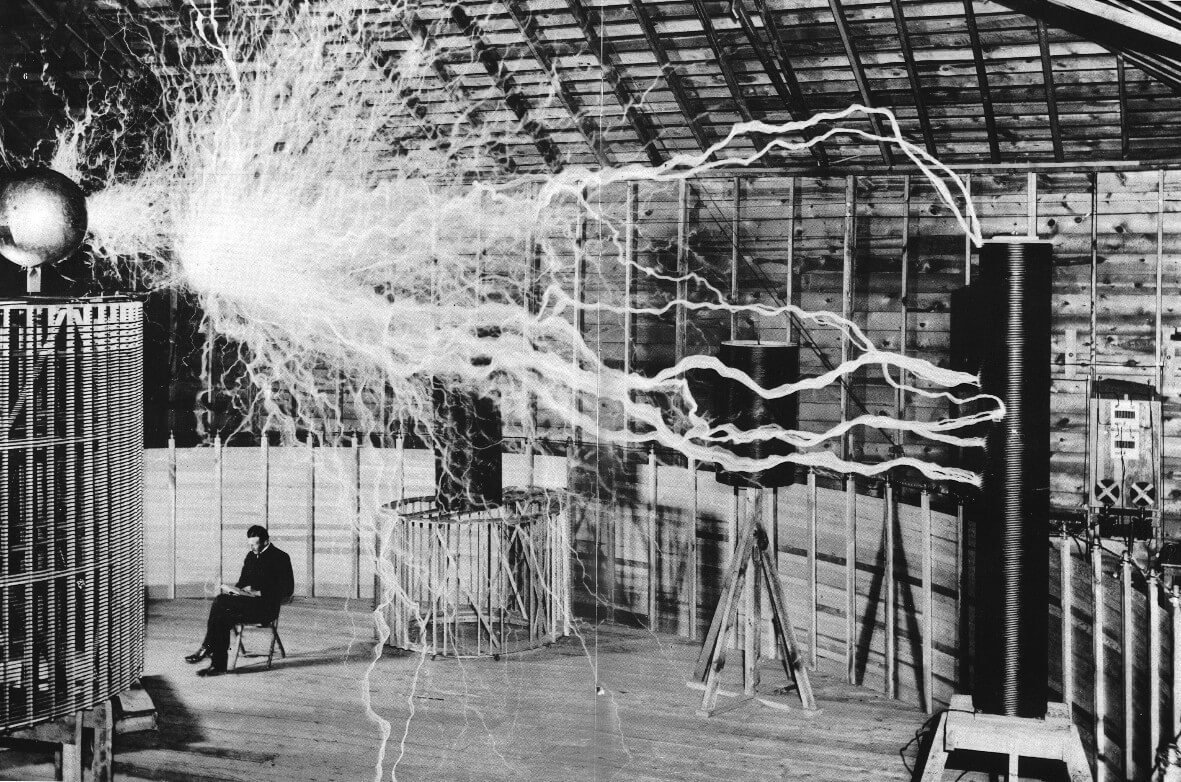
As a matter of fact, the tree with golden apples bears resemblance to the idea of the ramification of a prodigious scientific invention, which main trunk would grow new branches of impressive inventions and innovations. The technological base of these discoveries would originate another golden branches of exceptional inventions and immense opportunities. This sort of progress would necessary entail worldwide prosperity, exhilaration and harmony. Perhaps as an example of modern age: free energy by Nikola Tesla and non-chargeable ecological engines for automobiles, which would have extinguished the problem of pollution and heavenly burdensome costs of life.
Therefore, Perseus is not killing the working class that stood for the idea of its own liberation, or the working man, that became affluent. On the contrary, the head of Medusa is used to turn into stone the condition of the oppressed and agonizing humanity, by the means of free science, and the political leader who will be its greatest Maecenas. In fact, Perseus wipes out the last bondages and misadventures of humankind. He spends his own fortune on public needs, presiding as the ruler of the nation.
By virtue of Perseus and the head of Medusa, humankind will be immortal and eternally young. Thus, the condition of outrageous mandate of Zeus will come to an end. No diseases, pollution or poverty will be permitted in the world of Athena: astonishing mighty mechanism will be sustaining the arch of heavens, meanwhile amazing flowering gardens and streams will extol her Republic of truth.
Perseus and the unfortunate Andromeda
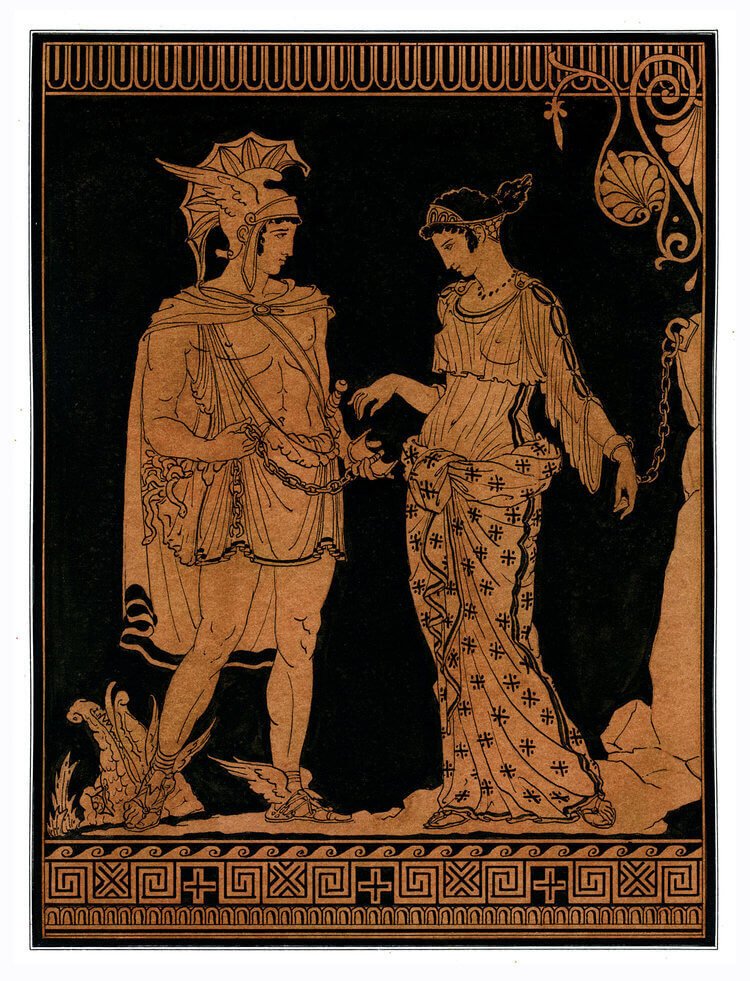
Long and arduous was Perseus’s journey of return. He reached the country of Aethiopia, at the far south of the earth. Peaceful king Cepheus ruled those country with his sagacious touch. His wife Cassiopeia had become arrogant and declared being more beautiful than all women around the world, even immortal goddesses.
The gods became infuriated after such a conceited self-proclamation and unleashed a terrible monster on Ethiopia – a huge whale, which was appearing from the sea time after time, attacking people and swallowing them. Cepheus implored the oracle of Zeus for help and asked how to get rid of this misfortune. The oracle revealed to Cepheus that he should sacrifice his daughter Andromeda in order to make the gods have mercy on his country.
Thence Andromeda had been taken to the seashore and chained to a rock, as a succulent victim for the whale. Rushing through the air to Seriphos, Perseus saw Andromeda from above, and thought her to be a wonderful statue of snow-white marble. But large tears rolled from the girl’s eyes, and her beautiful hair fluttered in the wind. Perseus came down and asked: “Who are you, fair maiden? Why are you chained to the rock?” Andromeda had told Perseus everything about her misfortune, and he decided to rescue her. Cepheus and Cassiopeia agreed to give Andromeda as a wife to the hero if he had succeeded to dispatch the monster.
Perseus’s battle and the monster whale
A huge gruesome whale appeared in the sea; Andromeda cried out in horror, and the monster opened its mouth wide, beginning to approach the rock. Perseus rushed at the creature, and a terrible battle outbroke between them. Perseus flied around the whale in his winged sandals, striking blow after blow. The monster beat the water frantically with its huge tail, kicking up thousands of splashes into the air; the sea was covered with tremendous foam mixed with the darkest carmine blood.
Perseus’ winged sandals got wet for a moment, and he could barely stay in the air. He embraced one of the rocks with his hand and when the monster tried to swallow him once again, he plunged his harp sword into its enormous wide chest … The dead whale turned over with his belly up, and his black blood began to spread all over the sea. Perseus broke the heavy chains of Andromeda and embracing her as a peerless unblemished treasure flied with her to the palace of Cepheus and Cassiopeia.
The wedding of Perseus and Andromeda
Perseus made rich sacrifices to his father Zeus, Athena and Hermes. A merry wedding feast began in the palace of Cepheus. The servants of the king adorned the palace with greenery and colorful, vivid flowers. The charming sounds of kiphars amused the slayer of Medusa, and the mirthful joy filled up the chamber. All of a sudden a menacing clang of weapons rang out in the banquet hall. It was Andromeda’s first bridegroom, Phineus, with a large army of soldiers. Phineus exclaimed frenetically, blaming Perseus for being a bride-kidnapper. He strained his young flabby muscles, and hurled a spear at him.
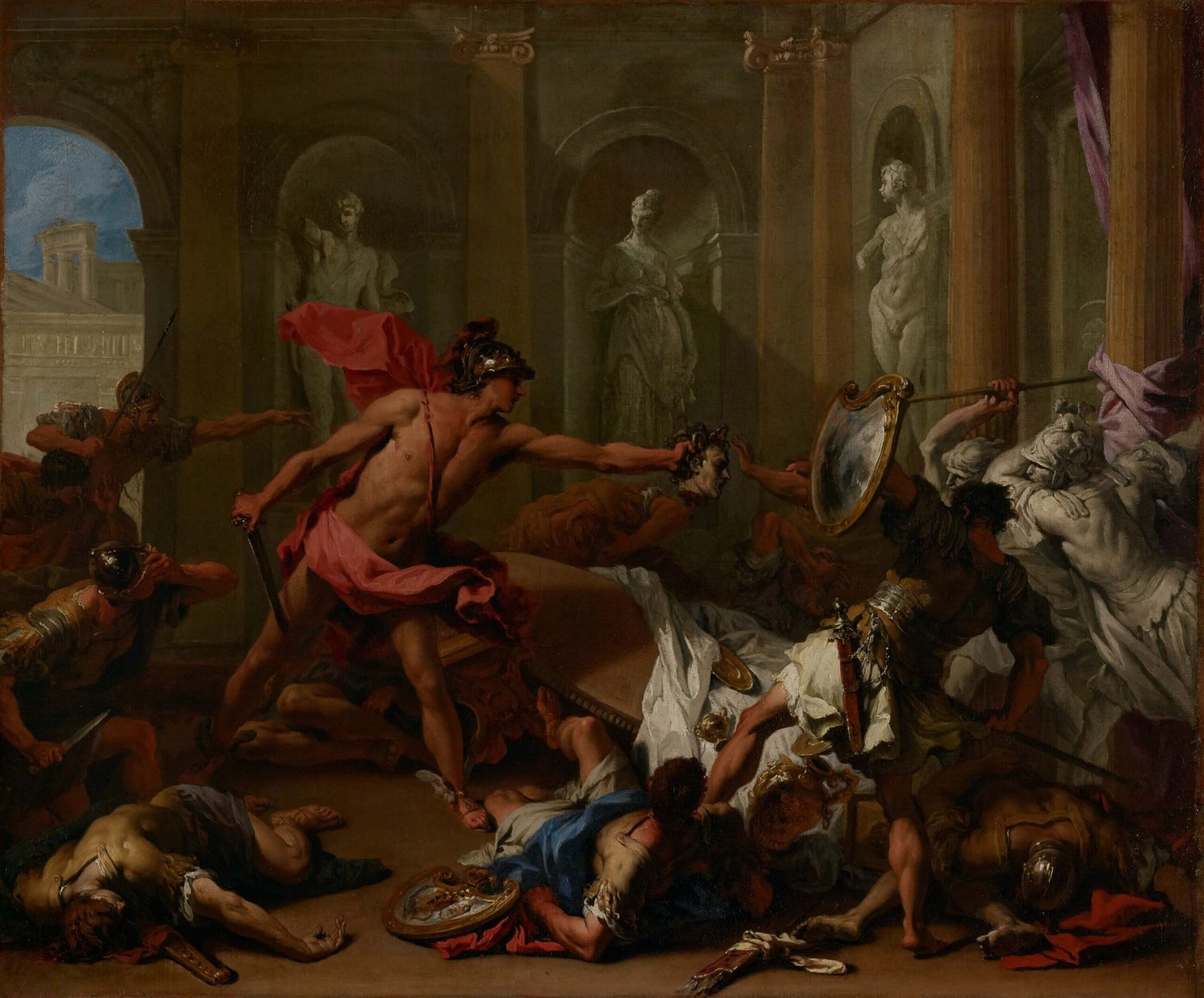
Thereupon the spear flew past and pierced into Perseus’s bed. The slayer of Medusa snatched it with his mighty hand and threw it back to Phineus. He would have struck him dead, but Phineus hid behind the altar, and the spear killed one of his friends. A terrible battle had begun. The goddess Athena quickly came from Olympus to aid Perseus. She covered him with her aegis and inspired invincible courage into him.
Perseus rushed into battle completely infuriated. Like a flash of lightning, his deadly swift sword, slashed one by one all the soldiers, who came with Phineas. Perseus was a stranger in the kingdom of Cepheus, therefore he had only few comrades-in-arms in the struggle. He had to fight alone against many enemies. But he was a very well trained and talented warrior. The clash of swords and the groans of the dying drowned out the romantic rumbling of music. Leaning against a column and covered by Athena’s shining shield, Perseus fought as a fierce lion, slashing and decapitating his foes left and right; a mountain of bodies covered with blood piled up all around him.
Perseus uses the head of Medusa against Phineus
The soldiers of Phineus were attacking from all sides, trying to wear down and overwhelm Perseus. Outnumbered and threatened of imminent wound, the mighty son of Danae cried out loudly to warn the guests to turn away. He took out the head of Medusa from his marvelous bag, raising it high above his head. One by one, the heroes, attacking Perseus, turned into statues.
Some of them petrified, swinging their swords about to pierce the chests of their enemies. Others stayed paralyzed, shaking their sharp spears, or covering themselves with shields. One simple glance at Medusa’s head had been enough to turn them all into marble statues. The whole banquet hall filled up with white shocking sculptures. Gripped by the fear from inside, Phineas fell on his knees stretching out his hands to Perseus, trying to supplicate for his life, but the son of Zeus didn’t want to forgive him.
The hero stretched out Medusa’s head to Phineus, and no matter how he tried, his glimpse fell upon her. The former groom of Andromeda, turned into stone, bending down like a slave in front of Perseus. The expression of fear and servile pleading in his eyes preserved forever as a direct evidence of his nature.
Perseus punishes Polydectes
As the story of Medusa goes, Perseus did not stay long after his bloody battle in the kingdom of Cepheus. He took Andromeda with him and made a quick journey of return to Seriphos. After their soon arrival to the island, Perseus found his mother Danae in a great grief. Fleeing from Polydectes and his oppressive harassment, she had to seek protection in the temple of Zeus. She didn’t dare to leave the shrine for a single moment and implored Perseus for help.
Perseus went to Polydectes’s palace without delay. He found the king of Seriphos and his friends, having a merry sumptuous feast. Polydectes did not expect Perseus to return. The king was sure, that the hero died, fighting the gorgons. Nonetheless, he smiled drunkenly and had addressed to him as a fellow: “Ah-ah, my fearful outcast, here you are! You’ve been traveling for a long time! Did you bring me Medusa’s head?” – “Yes, I have it right here in this sack.” said Perseus. All the royal guests laughed: “You lie, young man! You don’t have the head of Medusa! If you do, show it to us!”
Perseus’s heart boiled with anger: he opened the sack, took out the head and exclaimed: “If you don’t believe me, blame yourself!” After that Polydectes and his guests glanced at Medusa’s eyes and turned into statues.
Perseus in Argos
All things considered Perseus took his revenge on Polydectes and shortly afterwards handed over the power on Seriphos to Dictys. After an affectionate farewell with his old friend and teacher, he decided to move to his homeland at Argos. Thereupon Acrisius became aware of his return and fled from his kingdom far to the north.
The slayer of Medusa returned the magic items to the nymphs. He gave back the polished shield to Athena and afterward the harp sword to Hermes, beginning to rule happily in Argos. Later he had given the head of Medusa to Athena, his patroness, as a sign of high esteem and allegiance. She thanked the hero and placed Medusa’s head on her mighty shield.
Perseus kills Acrisius
Many years passed. Old Acrisius missed his homeland and decided to visit Argos one more time before his death. Therefore, he came there on the day, when Perseus organized a lavish contest. The young men of Argos were supposed to throw a heavy disc. When Perseus’s turn came, he threw the disc very strongly. It soared high into the sky, and falling down to the ground, hit Acrisius’s head, causing his death. Wherefore the oracle’s prediction came true. Thus the story of Medusa and her slayer had come to an end. Full of grief, Perseus buried Acrisius, lamenting having become the unwitting murderer of his grandfather.
The hero did not want to rule in Argos anymore. He went to Tiryns and ceded his power in Argos to his relative Megapenthes, in exchange for the crown of Tiryns. The slayer of Medusa managed to rule pleasantly along many years. He was an awesome and lucid politician, thus he had founded Mycenae afterwards, and left a prominent mark in Greek history. When the earthly life of the hero and his wife Andromeda had come to an end, the gods placed them in the sky. The constellations, bearing their names still shine to people from above.
The story of Medusa in the real life
Perseus and the inspiration of Athena
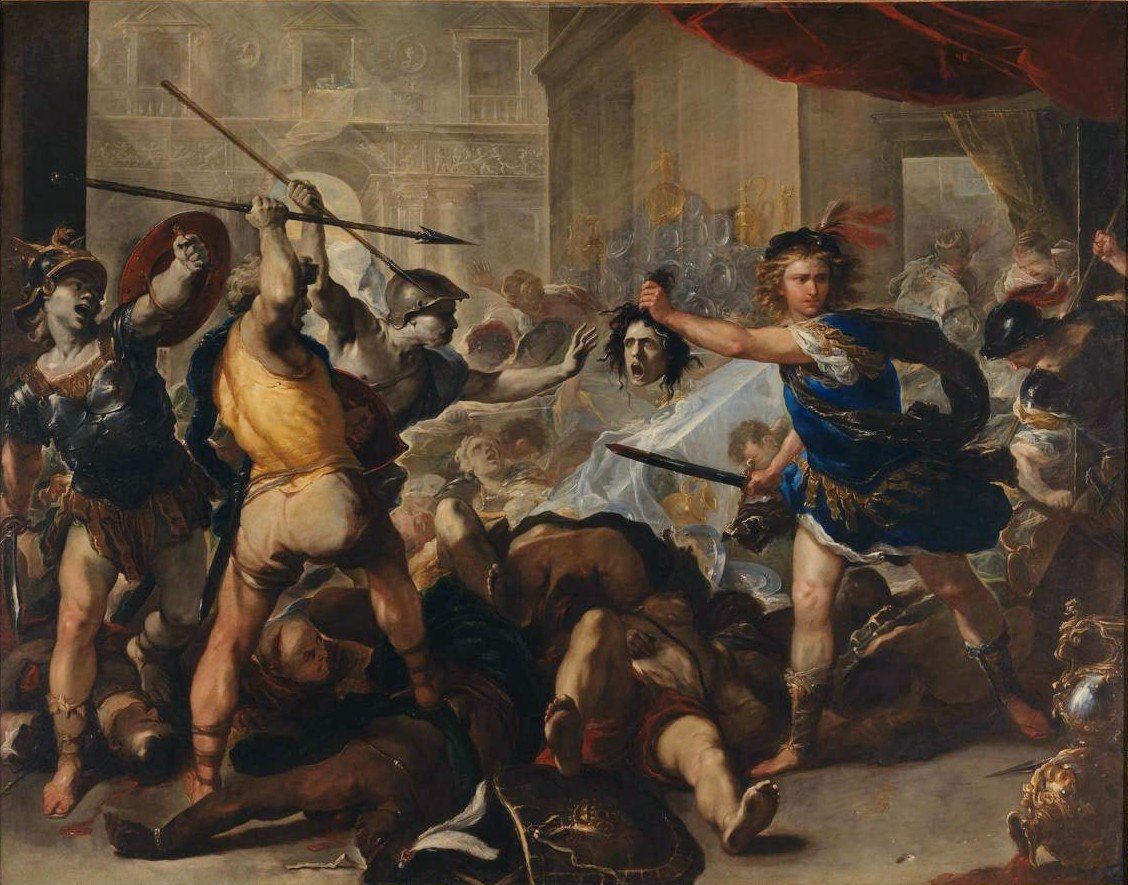
When Perseus fights the monster whale in the story of Medusa, he is not using her head to stop him. On the contrary, the outcast of Seriphos is fighting only with a sword against Cetus, showing unwavering bravery and great nimbleness. This same quality of character, agility and strength is strongly highlighted along Perseus’s fight against Phineus. That is, Athena inspires Perseus with an unflagging courage and terrible rage. She is protecting him with her aegis and shining shield, but it’s about him, who struggles and slashes the horde of enemies.
Thereby the inspiration of Athena represents the strength of will and warrior’s toughness, granted by the magnificent philosophical convictions and great ideology, such as her anarchism and political system of the Ideal State. The just cause of Athena strengthens Perseus in his fight against numerous throngs of enemies. As a matter of fact, the head of the gorgon is the power of devastated lies: experience, money and might, that the outcast of Seriphos had obtained by the means of wisdom and trade.
The condemnation of Medusa by Ovid. Poseidon and Athena
The roman poet Ovid had lived in the turbulent times of the Roman Empire, (41 BCE – 17/18 CE) after the rebellion of Spartacus, the major slave uprising against the Roman Republic, and along the establishment and early years of the Roman Empire with SPQR as the military standard of Roman Legion. Ovid, had been exiled by the emperor Augustus to Tomis, because of “poem and a mistake” there he had remained for the last ten years of his life.
That being so, Ovid’s new beginning of the story of Medusa from his most famous poem Metamorphoses is an extolment and praise of the same philosophical ideals, expressed along the whole set of ancient Greek mythology.
Medusa rejects the military democracy embodied by Poseidon
Poseidon’s sexual abuse of Medusa at the inner side of her temple looks like a typical discussion between the creed of Sparta and the ideals of ancient Greek philosophers. All of a sudden Poseidon performs a sacrilege, inside the sanctuary of wisdom. Threfore it looks like the scorn on wisdom, which was the essential mistake of many military rulers in Greece. The Spartans never considered the eminence of wisdom as worthy of military respect. However they required it to such a degree as the olive tree requires the water and sun.
Nevertheless, Poseidon is the god of the sea, which is so essential for the Greeks as the self-achievement, honor and integrity. Poseidon is a much better ruler, than Zeus. As a matter of fact, the philosophy of warriors always welcomed and admired the winners. To such a degree as the sea its conquerors. Zeus is the one, who forces the champions to born and live, like outcasts.
However, Poseidon is not the direct reflection of Sparta, but an improved and better image of its spirit. He embodies the rule of wise warriors, who do not segregate people, because of their weakness, disadvantages and different perspective of life. Thus, the god of the sea is also the embodiment of military democracy. In fact, he would incentivize the prosperous trade, craftsmanship, social justice and the progress of science and arts.
Consequently Poseidon would undeniably allow the Greeks to cross the further beyond of the seas. Thereupon, they would have conquered new territories and subjects, without unnecessary bloodshed, wars and waste of resources.
Medusa rejects the wise warriors and wisdom
Ovid had made Poseidon and Athena to be responsible for the damnation of the young Medusa onto her shape of a gorgon. Even if Ovid changed the myth under the demand of Augustus and with the purpose to mislead the way of Athena and Poseidon, the entire legend did not metamorphose strong enough and just had adquiered a deeper philosophical meaning.
In fact, the youthful Medusa flees Poseidon in the same way, as the average citizens of Rome would be fleeing the intelligent political leadership of the Roman legion. Given that this legion had overthrown the emperor for the sake and the progress of Rome.
Therefore the young Medusa embodies the inactive and indirect supporters of tyranny. Men or women, that condemn the idea of evil, and confirm the power of imperial despotism at the same time. The youthful maiden highlights her disdain towards perfection and makes it be a worse enemy than the emperor. In essence, she embodies “the useful snitches” of despotism. Medusa represents the resentment of people who push their envious herd-morality into the newest conception of the world.
Everything vane and weak is awesome, because it belongs to majority. Everything heroic, perfect and strong is pathetic and insane, because it belongs to a certain honorable minority. For that reason, this kind of romans, embodied by Medusa, are running away from the ideals of strength. They condemn the Ideal State of Athena, and opt for the absolutism of their own ignorance. As a matter of fact the emperor and the Senate had always satisfied the nature of the herd.
Medusa and the herd morality
“On one side, the roman legionaries are my faithful support. They are strong and well-paid warriors, whom I send to fight against barbarians and fortify the Empire. But on the other side, I allow simple people to enjoy their selfish dream. They see the strong and brave men, fighting one against another as gladiators. The legionaries and them are this type of muscular fools, whom my citizens rejoice dying. Strength, Honor and justice are nothing. It is your vile, unscrupulous emperor! I am the embodiment of your popular image and power! I lead Rome towards its marvelous and impious glory!”
Therefore, Medusa craves to destroy the notion of strong personality, exhibiting the mandate of boastful weakness and insolent way of stupidity.
Her sisters might have been the envious wish of self-profit and impious thirst for violence. Thereupon, Athena just gave them their real shape of monsters. For that reason, the youthful Medusa had metamorphosed into the acts and lies of tyranny. At first as a timid detractor of emperor, she turned into his ultimate stronghold.
On the flip side, Ovid had also provided Athena the deserved type of self-esteem. She doesn’t need to know for sure who is Medusa and doesn’t fail in her severe perception. Athena sees through the lies of the maiden and demonstrates being superior to the god of the sea.
Thereafter, Poseidon requieres Athena to build a better society, to such a degree as the army requires science. On the contrary, the goddess of wisdom doesn’t precise him. In fact, she is so powerful and eternal as the king of chess. She has Ares, Hermes, Hephaestus, Artemis, Theseus, Prometheus and Perseus. All her defenders are longing for their piece of truth, since they had lived, despising the power of Zeus.
Medusa in the Modern society

The story of Medusa is not just an old legend or the master key to the gates of Greek mythology. The youngest gorgon is universal, long-lasting and admonishing: she is the evil monster, which always had stopped the progress of humanity, turning into stones the potential, talents and opportunities of many nations and peoples all around the world.
That being so, Christianity, fascism and communism had been a very vigorous kind of Medusa: people’s life and thinking were strongly controlled and abruptly petrified by malefic eyes of totalitarianism. Persons had no opportunity to develop their own opinion and sense of judgement. On the contrary, they had to believe in the lies of the state.
However Medusa didn’t stay in the past. Nowadays she is worldwide present: the use of oil and polluting energy, deliberately organized absence of electric self-chargeable automobiles, planned obsolescence of household appliances, electronics and other types of technology, along with the deliberate absence of wastewater treatment plants and industrial air filters. This part of Medusa makes fade away people’s health and money, destroying the ecology of planet Earth and human habitat.
Medusa aggravates Capitalism
On the flip side, another portion of Medusa are aggressive capitalist policies, which ruin the free market economy. People’s productivity and wellness are falling apart, because of frustration and constant abuse. For example, extremely high house prices and abusive mortgages set up the part of this speculative Medusa. In effect, people have less money and opportunities; they feel stress and exasperation. As a result, they work and live worse, and Medusa paralyzes the advance of the whole economy.
On the other hand the dimes of jurisdiction and retrograde useless laws avoid people from reaching their best. The snakes of Medusa are hissing heinously and look so curly as the full bottom wig.
Then again all kind of falsities and dimes in educational system is nothing but the first gaze of gorgon’s terrible eyes. As a result many students, who finish the high school do not succed in their life. Their capacity stays very much below their real potential.
And finally the television programs and newest bad movies – is nothing but the insane and arrogant glimpse of Medusa. The fourth power had usually praised the vices and the rule of the herd morality. Thereupon, many people suffered this sort of useless propaganda. They had to enjoy the way of decay, vain foolishness and folly.
As Perseus by Benvenuto Cellini would have said: Medusa never had been the Republic and I never had been the Duke!
